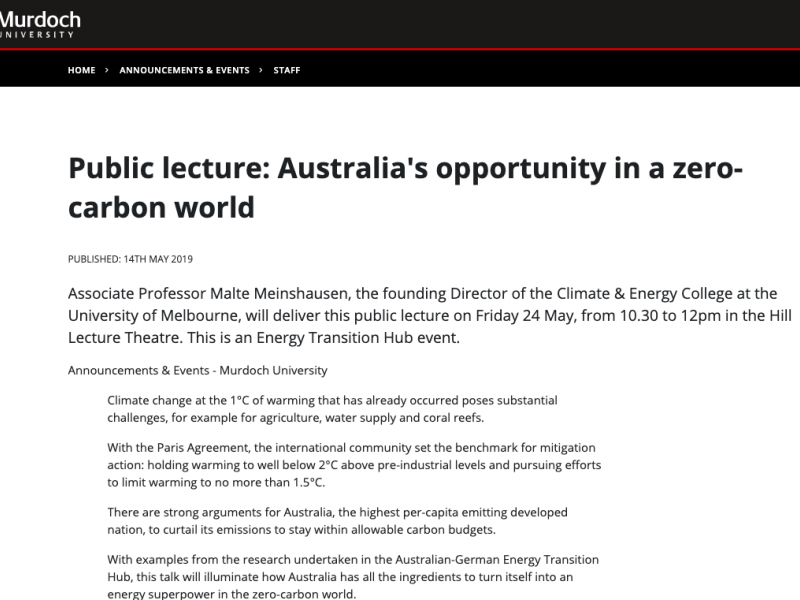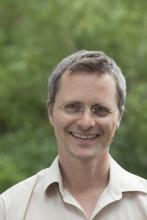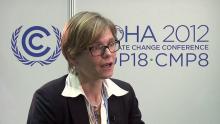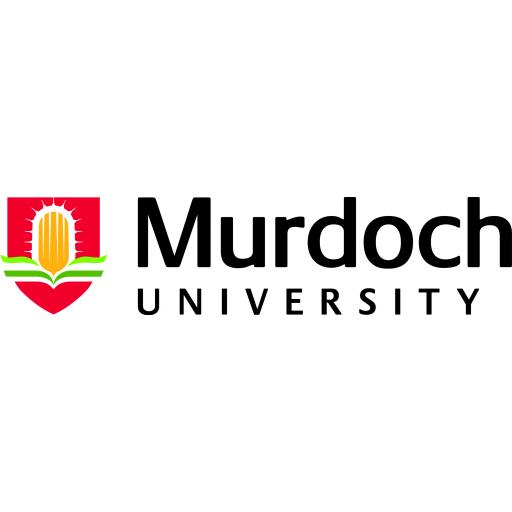Zero Carbon Transition at international, federal and state level

Lecture – 10:30 am – 12 pm, followed by a light lunch and a stakeholder workshop to discuss opportunities for Energy Transition Cooperation with South East Asia and a proposal for a Western Australian Energy Transition Hub Node based at Murdoch University.
With examples from research undertaken in the Australian-German Energy Transition Hub, this talk will show how Australia has all the ingredients to become an energy superpower in a zero-carbon world.
Cooperation with South East Asia
Countries in the South East Asia (SEA) region are at a crossroads. Their economies are growing fast, and with this, the demand for energy. With a growing population and increasing urbanisation, and some countries still working towards providing electricity access to all, electricity demand is growing even faster. The region is highly vulnerable to climate change impacts. Therefore, achieving the Paris Agreement objective of limiting global warming to 1.5 ̊C is of critical importance. Currently, the energy system relies heavily on fossil fuels, with only a small fraction of the existing renewable energy potential being used.
A significant fraction of projected global coal capacity growth in the next 10 to 15 years could occur in this region, in particular Indonesia, Vietnam, and the Philippines – threatening the achievement of the Paris Agreement temperature goal and of sustainable development goals.
We will look at opportunities for SEA countries to embark on a transition towards zero emissions based on renewable energy, including through cooperation in the region itself, as well as cooperation opportunities between Australia and SEA countries to enhance investment in renewable energy in South-East Asia, building on the existing close cooperation in other areas, as well as large renewable energy potentials, and Australian experiences and skills and export opportunities.
Proposal for a Western Australian Energy Transition Hub Node
Murdoch University, together with other universities and research institutions, can contribute expertise in a wide range of research fields related to the four themes of the Energy Transition Hub, as well as a broad network of collaboration within the state and beyond, including with neighbouring countries in Asia. The Energy Transition Research Hub WA Node will empower West Australians and their institutions to take the best economic, social and environmental advantage of the most critical long-term economic and social issue for the state over the next years and decades.
Western Australia can benefit from vast and diverse renewable energy, mineral, land and marine resources and play a vital role contributing to the national and global transition to a global zero carbon energy future. While Western Australia has seen the largest increase in rooftop solar installations, it is now the only state without a renewable energy target and/or net zero emissions target in place.
WA government and stakeholder institutions can draw value from the rich work of the overall Research Hub across the four themes, funded at the federal level both in Australia and Germany. A key element providing added value would be a focus on sector linkages and synergies, with an emphasis on addressing specific opportunities and challenges at state and regional level, including opportunities for key industry and trade sectors. This would be ensured through a structured consultation of stakeholders and local and regional communities.
More details are here.




